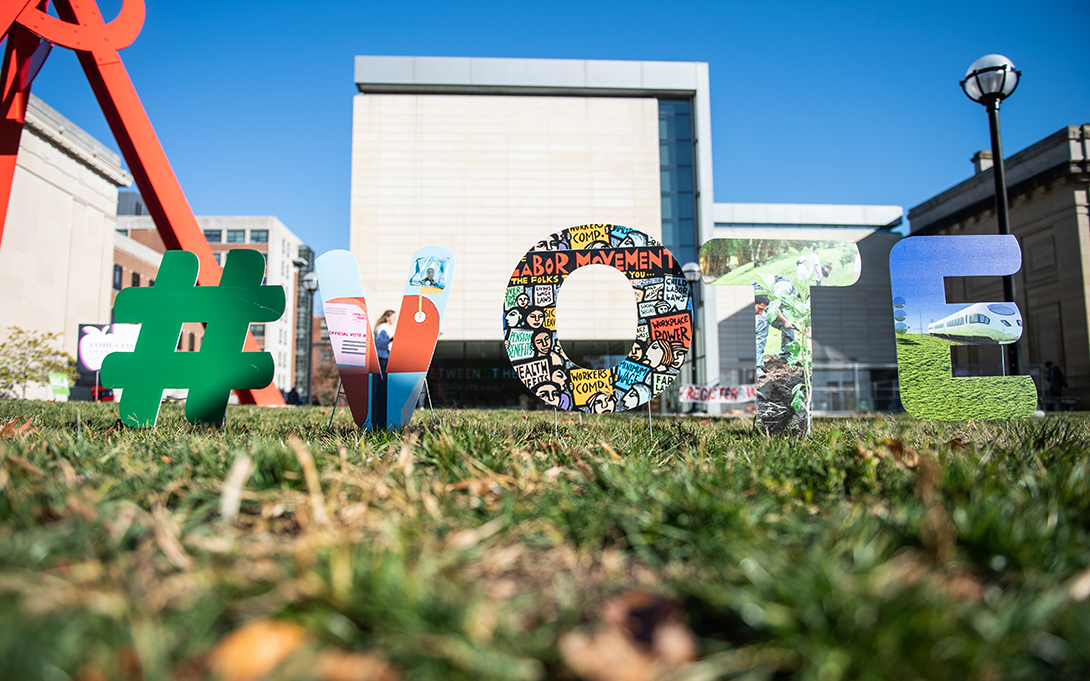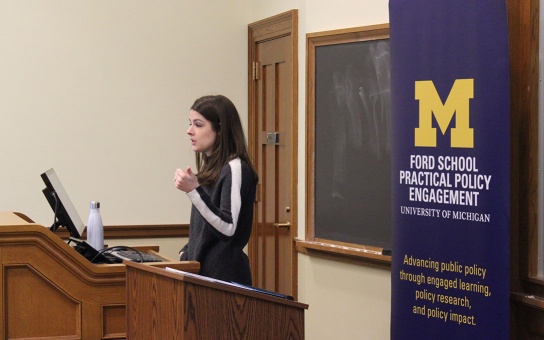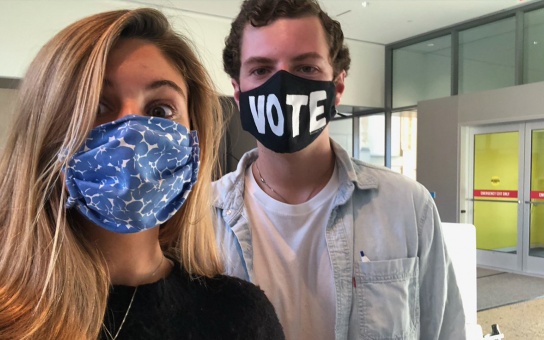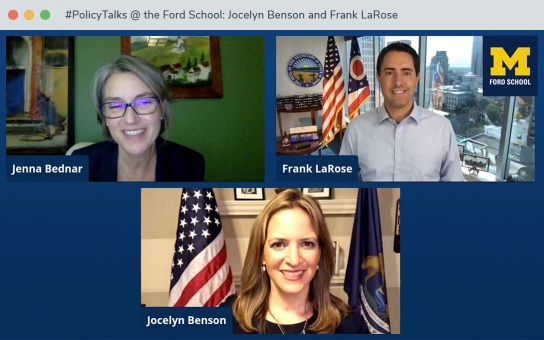
By Daniel Rivkin
The frenzied political campaigns of 2020 are over, and President-elect Joe Biden and Vice President-elect Kamala Harris will take office on January 20. With about 153 million votes estimated to have been cast, voter participation of 67 percent of eligible citizens was at a level not seen in 120 years.
Leading up to the election, the Ford School community engaged in the electoral process in many ways, including encouraging widespread voter participation, exploring the dynamics of our electoral institutions and systems, and examining new ways to ensure that the vote accurately reflects the population through redistricting.

Dean Michael Barr co-led, with vice president for government relations Cynthia Wilbanks, the University-wide Democracy & Debate Theme Semester, which included a wide array of creative programming, courses, and opportunities for engaged learning, including many offered by the Ford School. We’re told 3.4 million users engaged as well online.
Students, staff, and faculty received resources to encourage voter registration in workshops led by the Ginsberg Center’s Kari Rea (MPP '20) and organized by the Ford School’s Program in Practical Policy Engagement. Professors Hannah Smotrich and Stephanie Rowden of the Stamps School of Art & Design partnered with the City of Ann Arbor clerk’s office to create a satellite office at the University of Michigan Museum of Art, where 5,412 students, staff, and faculty registered to vote, and 8,501 voted. Ford School professor Edie Goldenberg was a key advisor for the initiative.

Damian Chessare (BA ‘21) was among the many Ford School students registering voters, working to get out the vote, and observing polling stations. “The response throughout the semester was unbelievable, and it really gave me the hope I needed to get through my policy studies in a challenging world where many of our leaders have been acting in diametric opposition to what we are taught to be good policy making,” he said.
Professors Goldenberg, John Chamberlin, and Oliver Thornton led a repeat of their 2016 class, “Producing Voter Engagement,” in which Ford School students were joined by students of film and video studies, engineering, and other programs to produce public service announcements encouraging voter registration and participation. You can view them here, here, and here.

The semester also offered students opportunities to better understand the electoral system. For example, in their bipartisan Policy Talks event, the secretaries of state of Michigan and Ohio, Jocelyn Benson (D) and Frank LaRose (R), addressed faith in processing and counting the record number of votes, and especially mail-in ballots, reassuring that the systems in place were robust, secure, and accurate. This confidence was reinforced by two Center for Local, State, and Urban Policy (CLOSUP) reports released before the election that showed that 98 percent of Michigan's local officials were confident of accurate voting administration and that a vast majority trusted their local democratic institutions more than that of the state or federal governments.
In a separate CLOSUP project, Professor John Chamberlin led a team of students to help the new Michigan Independent Citizens’ Redistricting Commission (ICRC) understand one of the key aspects of the redistricting criteria: the concept of Communities of Interest (COI). The ICRC, composed of Democrats, Republicans, and Independents, will redraw state and federal districts. Chamberlin and CLOSUP Executive Director Tom Ivacko continue to partner with the Michigan Department of State (MDOS) to proactively engage with communities in the redistricting process. Ivacko says it is likely the ICRC will hear from well-organized and well-resourced COIs (such as chambers of commerce), and are unlikely to hear from COIs like local community groups that don't have professional staff and budgets. With the help of a team of students, they will create a database of COIs for the ICRC with the hope that they may be reflected in the new districts.
Summing up the activity, Dean Barr wrote to the Ford School community in the election’s aftermath, “We should take pride in the University community's broad engagement with the democratic process.”
Below, find the full, formatted Fall 2020 edition of State & Hill.